Calendar of events, awards and opportunities
Every week, we update this list with new meetings, awards, scholarships and events to help you advance your career. If you’d like us to feature something that you’re offering to the bioscience community, email us with the subject line “For calendar.” ASBMB members’ offerings take priority, and we do not promote products/services. Learn how to advertise in ASBMB Today.
FASEB family care awards
The Federation of American Societies for Experimental Biology has launched the Career Advancement and Research Excellence Support (CARES) Program, which provides financial support for caregiving, enabling FASEB society members to continue their scientific training, professional development and career progression. Read the eligibility requirements and apply.

On-demand webinar: Becoming an early-career reviewer at the NIH
This free webinar features the ins and outs of the Early Career Reviewer Program at the National Institutes of Health’s Center for Scientific Review, which gives emerging investigators an inside look at the scientific peer-review process. Elyse Schauwecker, a scientific review officer at CSR, talks about the benefits of participating, eligibility, the application process and recent changes. Watch the recording.
IUBMB relocation support for displaced trainees
The International Union of Biochemistry and Molecular Biology is offering $2,000 to graduate students and postdocs displaced from their labs as a result of natural disaster, war or "other events beyond their control that interrupt their training." The money is for travel and settling in. Learn more and spread the word to those who could use assistance.

Aug. 9: Two-part webinar featuring ASBMB award winners
Starting at noon on Aug. 9, we'll have talks by two 2022 ASBMB award winners, followed by Q&A sessions. Come for one or both!
12 p.m. Eastern: Snapshots of lipid synthesis and fat storage | Michael Airola, Stony Brook University
1:30 p.m. Eastern: Chromatin-based modulations underlying gene regulation and pathogenesis | Greg Wang, University of North Carolina School of Medicine
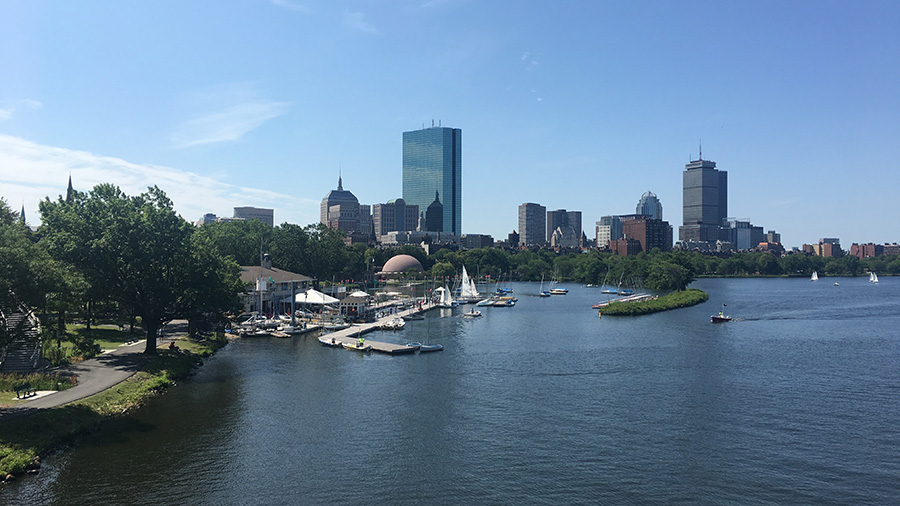
Aug. 12: Virtual registration deadline for mass spec meeting
This five-day conference will be held Aug. 14–18 in person in Cambridge, Massachusetts, and online. It will be an international forum for discussion of the remarkable advances in cell and human protein biology revealed by ever-more-innovative and powerful mass spectrometric technologies. The conference will juxtapose sessions about methodological advances with sessions about the roles those advances play in solving problems and seizing opportunities to understand the composition, dynamics and function of cellular machinery in numerous biological contexts. In addition to celebrating these successes, the organizers also intend to articulate urgent, unmet needs and unsolved problems that will drive the field in the future. The registration deadline was July 1, but you have until July 12 to register to participate virtually. Learn more.

Aug. 15: Workshop and interest group proposals due for #DiscoverBMB
For Discover BMB, the ASBMB's annual meeting in March in Seattle, we're seeking two types of proposals:
- Workshops: These are interactive 60- to 90-minute events focused on careeers, skill building, science outreach and communication, and diversity, equity, access and inclusion. (This article explains what sorts of proposals we're seeking.) Submit a proposal.
- Interest groups: The goal of the interest group sessions is to build communities. (We wrote about how this program got started and how it has worked in the past in this article.) At #DiscoverBMB, interest groups will be scheduled on the first day of the meeting, March 25. Submit an interest group proposal.
ASIP virtual seminars of interest
The American Society for Investigative Pathology is running a series of young investigator keynote talks through the end of the year. Here's the lineup. Register.
Aug. 17: miRNA-Based Cancer Classifier from TCGA Expression Profiles — Tashifa Imtiaz, Queen's University
Sept. 21: Selection for a Preferred Threshold Level of PI3K Pathway Activation During Myc-driven Mammary Carcinogenesis — Maryknoll Palisoc, Penn State College of Medicine
Oct. 19: Investigating Calcium Dysregulation and Viral Virulence Using Forward and Reverse Genetics — Thomas Gebert, Baylor College of Medicine
Nov. 16: Modeling Glut1 Deficiency Syndrome at the Human Blood-Brain Barrier In Vitro Using CRISPR-Cas9 Edited Induced Pluripotent Stem Cells — Iqra Pervaiz, Texas Tech University of Health Sciences
Dec. 14: Mechanisms of IL-6-driven Endothelial Dysfunction — Ramon Bossardi Ramos, Albany Medical College
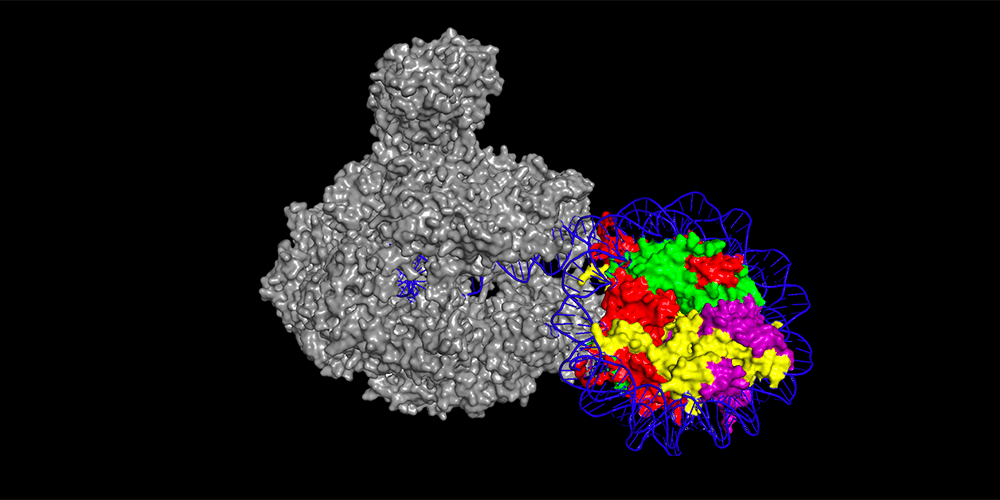
Aug. 18: Poster abstract deadline for transcriptional regulation meeting
This in-person meeting will be held Sept. 29 through Oct. 2 in Snowbird, Utah. Sessions will cover recent advances and new technologies in RNA polymerase II regulation, including the contributions of non-coding RNAs, enhancers and promoters, chromatin structure and post-translational modifications, molecular condensates, and other factors that regulate gene expression. Patrick Cramer of the Max Planck Institute will present the keynote address on the structure and function of transcription regulatory complexes. The deadline for abstracts for talks is now July 21. The early registration deadline ($50 in savings) is Aug. 1. The deadline for poster presentation abstracts is Aug. 18. The regular registration deadline is Aug. 28. Learn more.

Aug. 18: New abstract deadline for epigenetics meeting
Most meetings on epigenetics and chromatin focus on transcription, while most meetings on genome integrity include little attention to epigenetics and chromatin. This conference in Seattle will bridge this gap to link researchers who are interested in epigenetic regulations and chromatin with those who are interested in genome integrity. The oral and poster abstract deadline is Aug. 18. The registration deadline is Sept. 1. Also, travel awards are available to help defray costs. Learn more.
NIH DEAI listening sessions
The National Institutes of Health is holding a series of listening sessions for members of the scientific community from certain populations. According to the event announcement, "Any member of the community or ally will have an opportunity to share their perspectives on workforce related challenges and solutions." NIH Acting Director Lawrence Tabak and others will be in attendance. See the August schedule below. Other listening sessions are slated for subsequent months. Register.
Aug. 19, 9–10 a.m.: Hispanic/Latino
Aug. 22, 11 a.m. – 12 p.m., Native American
Aug. 31: Survey about undergraduate women in STEM
Researchers at Albion College are conducting a survey about women's experiences with STEM mentors during their undergraduate years. If you'd like to participate, access the survey here. It should take about 15 minutes to complete. The deadline is Aug. 31.
Sept. 14: Webinar on androgens and cardiovascular diseases in women
The American Physiological Society is hosting a free webinar that will cover polycystic ovary syndrome, an endocrine disorder associated with modestly elevated androgens, and hormone therapy for transmen, which elevates androgens greatly to achieve levels similar to those in cisgender men. The event announcement says: "The role that these two different concentrations play in cardiovascular physiology and pathophysiology remains unclear. Gaps and opportunities in basic research and clinical practice will be highlighted." The speaker will be Licy Yanes Cardozo, a physician-scientist at the University of Mississippi Medical Center. Learn more and register.
Sept. 28: Deadline for new HHMI Freeman Hrabowski Scholars Program
In May, the Howard Hughes Medical Institute launched a roughly $1.5 billion program to "help build a scientific workforce that more fully reflects our increasingly diverse country." The Freeman Hrabowski Scholars Program will fund 30 scholars every other year, and each appointment can last up to 10 years. That represents up to $8.6 million in total support per scholar. HHMI is accepting applications from researchers "who are strongly committed to advancing diversity, equity, and inclusion in science." Learn more.
Oct. 3: Nominations for NAS awards due
The National Academy of Sciences offers more than a dozen annual awards, and the nomination deadline for all of them is Oct. 3. You can see the full list here, but we want to draw your attention to the NAS Award in Molecular Biology (for a young investigator).
Oct. 5: Deadline for DOE undergrad internship applications
Undergraduate students interested in interning at a U.S. Department of Energy laboratory in the spring must apply by Oct. 5. There are two programs to be aware of: the Science Undergraduate Laboratory Internships program and the Community College Internships program. In both cases, students work at national laboratories on research or technology projects supporting the agency's mission. All full-time students or recent grads are eligible for the first program, and community college students are eligible for the other. These are paid positions. Learn more.
Oct. 5: Deadline for DOE visiting faculty program applications
The U.S. Department of Energy has expanded its opportunities for faculty members from historically underrepresented groups to engage in research at national labs. The Visiting Faculty Program is intended to create partnerships between national labs and two-year colleges, minority-serving institutions and other colleges and universities nationwide. About 50% of participants are from MSI, and one-third of those are from historically Black colleges and universities. The deadline to apply is Oct. 5. Learn more.
Oct. 17–21: NASA bridge program workshop
The NASA Science Mission Directorate Bridge Program is intended to improve diversity, equity, inclusion and accessibility at NASA and in the broader STEM community. The agency seeks to partner with minority-serving institutions, primarily undergraduate institutions and Ph.D.-granting universities and provide paid research student positions "to transition science and engineering students from undergraduate studies into graduate schools and employment by NASA," according to the announcement. A virtual workshop will be held from Oct. 17 through Oct. 21. You have to formally express interest in attending. Learn more.

Nov. 2: ASBMB Virtual Career Expo
Save the date for the ASBMB Career Expo. This virtual event aims to highlight the diversity of career choices available to modern biomedical researchers. No matter your career stage, this expo will provide a plethora of career options for you to explore while simultaneously connecting you with knowledgeable professionals in these careers. Each 60-minute session will focus on a different career path and will feature breakout rooms with professionals in those paths. Attendees can choose to meet in a small group with a single professional for the entire session or move freely between breakout rooms to sample advice from multiple professionals. Sessions will feature the following five sectors: industry, government, science communication, science policy and other. The expo will be held from 11 a.m. to 5 p.m. Eastern on Nov. 2. Stay tuned for a link to register!
Nov. 6: Submission deadline for policy-related papers
The Journal of Science Policy & Governance and the National Science Policy Network issued a call for papers for an issue containing policy ideas from the next generation of scientists. The submission deadline is Nov. 6. They encourage submissions "that highlight policy opportunities and audiences related to the 2022 U.S. midterm elections at the local, state or national level as well as related foreign policy issues." Read the press release.
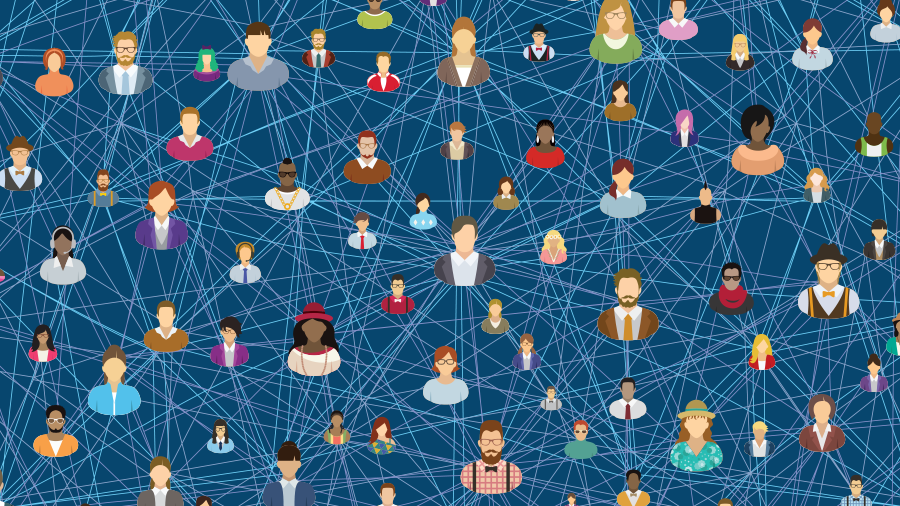
Call for virtual scientific event proposals
The ASBMB provides members with a virtual platform to share scientific research and accomplishments and to discuss emerging topics and technologies with the BMB community.
The ASBMB will manage the technical aspects, market the event to tens of thousands of contacts and present the digital event live to a remote audience. Additional tools such as polling, Q&A, breakout rooms and post event Twitter chats may be used to facilitate maximum engagement.
Seminars are typically one to two hours long. A workshop or conference might be longer and even span several days.
Prospective organizers may submit proposals at any time. Decisions are usually made within four to six weeks.

Take over the JLR Twitter account
If you are a graduate student, postdoc or early-career investigator interested in hosting a #LipidTakeover, fill out this application. You can spend a day tweeting from the Journal of Lipid Research's account (@JLipidRes) about your favorite lipids and your work.
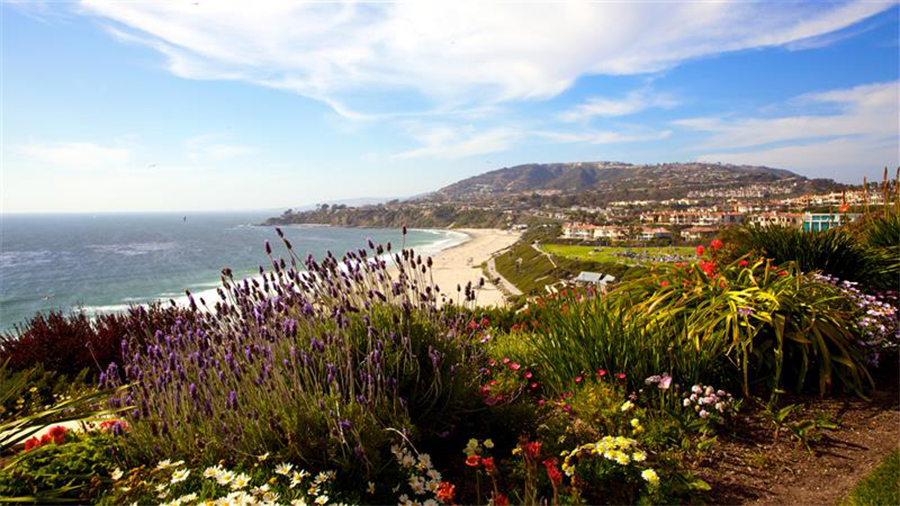
March 7–10: Save the date for Deuel
The ASBMB Deuel conference is a must-attend event for leading lipids investigators — and for scientists who’ve just begun to explore the role of lipids in their research programs. This event will bring together a diverse array of people, including those who have not attended Deuel or perhaps any lipid meeting before. The conference is a forum for the presentation of new and unpublished data, and attendees enjoy the informal atmosphere that encourages free and open discussion. Interested scientists are invited to attend and encourage trainees to submit abstracts. Learn more.
Enjoy reading ASBMB Today?
Become a member to receive the print edition four times a year and the digital edition monthly.
Learn moreFeatured jobs
from the ASBMB career center
Get the latest from ASBMB Today
Enter your email address, and we’ll send you a weekly email with recent articles, interviews and more.
Latest in Careers
Careers highlights or most popular articles
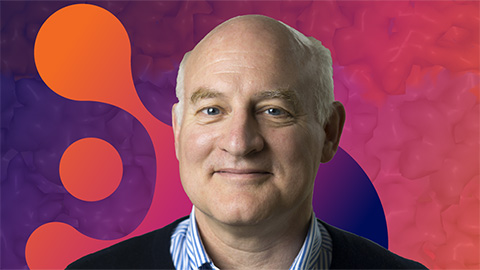
Building the blueprint to block HIV
Wesley Sundquist will present his work on the HIV capsid and revolutionary drug, Lenacapavir, at the ASBMB Annual Meeting, March 7–10, in Maryland.
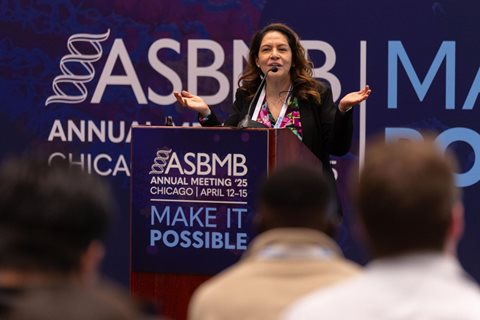
Upcoming opportunities
Present your research alongside other outstanding scientists. The #ASBMB26 late-breaking abstract deadline is Jan. 15.
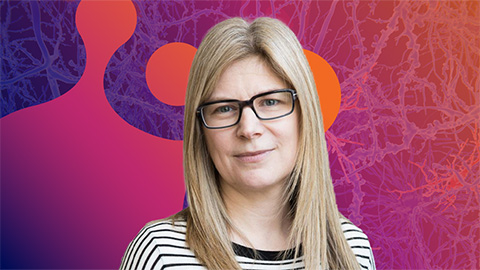
Designing life’s building blocks with AI
Tanja Kortemme, a professor at the University of California, San Francisco, will discuss her research using computational biology to engineer proteins at the 2026 ASBMB Annual Meeting.

Upcoming opportunities
#ASBMB26 late-breaking abstract submission opens on December 8. Register by Jan. 15 to get the early rate on our Annual Meeting.

Make your abstract stand out
Ensure your research is impossible to overlook. Get quick, practical reminders for crafting an abstract that attracts readers and helps you build connections at the conference.
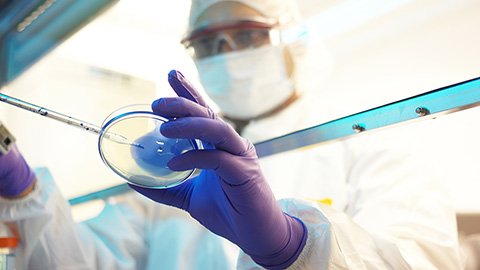
Inside industry postdocs
As more Ph.D. scientists look beyond academia, industry postdocs offer a new kind of training, where mentorship meets mission-driven research. Fellows at Pfizer and Genentech share how these programs prepare them to translate discovery into impact.
